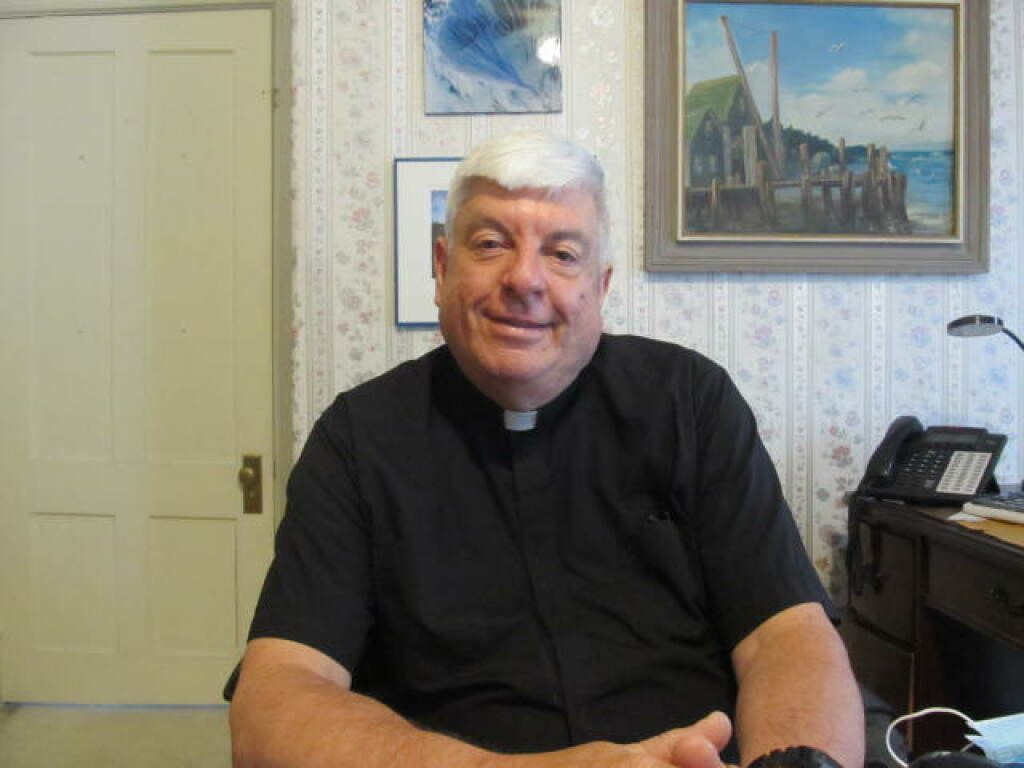 Mary, Mother of the Poor
Mary, Mother of the Poor
Homily for the Fourth Sunday of Advent
December 20, 2020
Several years ago, I read a story that had a profound impact on me. It was about a young minister who was upset because on his day off he was told that there was somebody in the office who needed to speak to him. He begrudgingly went into the office to find a young man in shabby clothes, a street person who had a stench indicating he had not bathed recently. As the street person’s story began, he explained that he had no place to stay. The young minister could see it coming: he was going to be asked for money. Deep down, he hoped that the housekeeper would interrupt and tell him there was an urgent task to attend to. As it happened the housekeeper did knock and told the minister he was wanted on the phone. So he excused himself and went to take the call.
When he came back, the office was empty; the street person had left. Feeling guilty, the minister decided to look for him, first by looking up and down the street, and then driving around the neighborhood. When he finally found the individual, he pulled his car over to the curb and said, “I’m sorry that I had to leave. Would you come back with me and finish our conversation?” The young man simply shrugged and said in a low voice, “You’re just like everybody else. No one wants to listen.” He turned around and walked off into the night.
In today’s gospel we have an example of someone who knew how to listen, Mary, the mother of Jesus. I get the impression that there was a simplicity and humility about her, as well as an openness and the ability to trust. Jesus would later remark that what is hidden from the learned and the clever is being revealed to those who are childlike.
Pope Francis teaches, over and over again, that if we want to find God, we have to go out to the peripheries, out to the edges. And in Mary we have someone who definitely fits the description. Many years ago, I visited Nazareth. A major lasting memory is that of the main “street” of the town, the area with all the souvenir stands and shops. It is basically a series of steps going up a hill. In the middle is a kind of ditch in which donkeys carrying various supplies bring goods up and down the hill. The day I was there, we saw a red liquid flowing down the ditch; further up the hill, we learned that it was the blood of an animal that a butcher was carving into pieces.
It is precisely to this town, poverty-stricken, far removed from the capital, that the angel is sent to ask a young girl to accept the seemingly impossible. God chose to come to her, to ask her for her cooperation in a plan to thrust the Son of God into poverty, into a part of the world where not much of significance seemed to be going on.
Pope Francis reminds us: “The poor are at the heart of the Gospel; we cannot understand the Gospel without the poor. The poor are like Jesus himself, who, though rich, emptied himself, made himself poor…” The Holy Father’s advice brings us to the true meaning of Christmas. He continues, “How often do we hear people ask: ‘What can I buy?’ ‘What more can I have?’ Let us use different words: ‘What can I give to others?’ in order to be like Jesus, who was born in the manger.”
The street person represented for the young minister all that was inconvenient, unsavory and frustrating about those living on the margins, the peripheries of society. He could have continued to be cynical, condescending and judgmental, but he realized that that would put him among the “learned and the clever” who would not enter the Kingdom of God. And he chose, in the end, to get off his high horse and look for the man who needed him. In our tradition Mary stands for a lot of things and she has many titles. Today I want to honor her role in the Christmas story by remembering that she is the mother of the poor—the Mother of those who live where God likes to be found. Mary can teach us how to let go of our prejudices, our racism, our judgmentalism and our arrogance, as we celebrate the birth of Jesus, who made us all brothers and sisters—with each other, and especially with the poor.
You might also like
Father's Homilies




